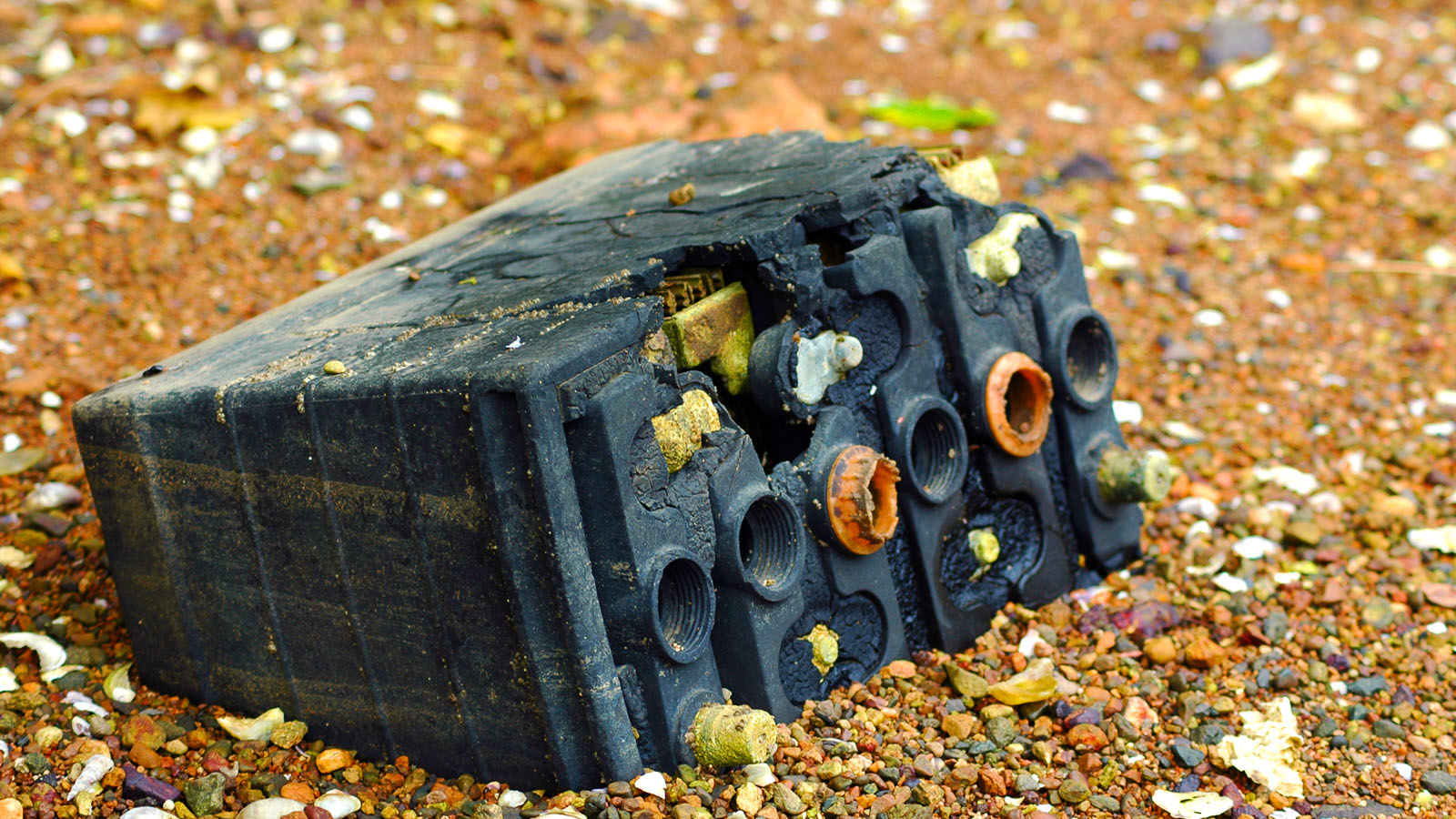Q. I had to get a new battery for my car. I asked the guy what they did with the old one and he said they recycled it. I asked where and how and he had no idea. I Googled it when I got home and found out that a lot of old car batteries get sent to Mexico each year, where they do a lousy job of recycling them. Did I just poison the environment and cause lead pollution?
Pat
Baltimore, Md.
A. Dearest Pat,
Don’t be so hard on yourself. I wouldn’t say that you poisoned and polluted anything (unless you personally drove that spent battery down to Tijuana). In fact, you went the extra mile by investigating just where the battery would end up – more than many other drivers would do. Still, you’re not totally off the hook: I would say that we are indeed collectively poisoning and polluting certain corners of our environment with our car battery-disposal practices — and there are some things we should do to remedy that.
Most cars use lead-acid batteries, each of which packs about 20 pounds of lead – which, as we’ve all heard, is a potent poison that does particularly worrisome damage to kids’ developing nervous systems. Lead is also quite valuable, as we need it to build wind turbines, cell phone towers, and of course, more car batteries. That value translates to exceptionally high recycling rates: 96 percent for all lead-acid batteries.
In the United States, strict EPA regulations require recycling plants to take careful steps to prevent contaminating their surroundings. This is not the case, however, for the lead recycling plants in developing countries like Mexico. Mexican recycling plants use much cruder techniques to get at the lead – we’re talking guys-smashing-batteries-with-hammers crude. According to investigative work done by the New York Times, these plants’ smokestacks spew lead-infused air into the neighborhood, where the dust settles on everything (including the soil in school playgrounds). Mexican lead-emissions standards are about one-tenth as strict as ours.
And here’s where we get involved in this whole sorry mess: U.S. exports of spent lead-acid batteries (called SLABs in industry parlance) have risen steeply over the last few years. One environmental commission reports that battery exports have jumped 449 to 525 percent from 2004 to 2011, for a total of 857 million pounds of car and truck batteries. All in all, about 20 percent of our SLABs go across the border for shoddy recycling. For a more detailed look into that dirty business, check out this report from the Commission for Environmental Cooperation.
What gives, you might ask? The EPA tightened lead standards in 2008, which had the unfortunate side effect of making it a lot easier and cheaper for our plants to ship SLABs down south for processing rather than complying. If that sounds like blatant disregard for our neighbors as well as our planet, Pat, well…
What can we as dead-battery holders do about all this? Individually, it’s tough to trace what happens to your old battery after you hand it off to the shop or the dealer or your local hazardous-waste disposal team. As you discovered, employees may not have a clue where it will end up; and even if the battery first goes to one of our own recycling facilities, the SLAB may still be shipped on to Mexico.
Many watchdog groups are instead pressing for regulatory action to stem the lead-filled tide flowing south – or to hold Mexican plants to higher standards. If this cause moves you, I encourage you to get in touch with operations like the Commission for Environmental Cooperation and Occupational Knowledge International, both of which make SLAB pollution a major focus. Advocacy group SLAB Watchdog takes a slightly different tack by calling for major retailers like Sam’s Club, Jiffy Lube, and Walmart to make sure all their collected batteries go to high-tech domestic recyclers.
This is a big, dirty problem, and we’re going to need some serious backup to fix it. In the meantime, Pat, we can include “batteries spew lead all over innocent communities” to our list of reasons to cut down on our driving.
Energetically,
Umbra



